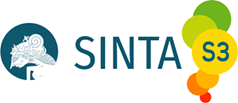Penerapan Model Problem Based Learning Berbantuan Geogebra Untuk Meningkatkan Hasil Belajar Peserta Didik
DOI:
https://doi.org/10.33394/mpm.v13i1.15439Keywords:
Problem Based Learning, GeoGebra, learning outcomesAbstract
This study aims to describe the application of the Geogebra-assisted Problem Based Learning model to improve student learning outcomes in the exponential function graph material of class XI-6 SMAN Pakusari, Jember Regency. This study was conducted in two cycles using a collaborative classroom action research methodology. The data analysis techniques used were qualitative and quantitative data analysis. Data were collected through observation sheets of 36 students, consisting of 9 males and 27 females. The results of the study showed an increase in student learning outcomes, with an average student learning outcome in the pre-cycle stage of 61.34, increasing to 68.92 in cycle I, then increasing to 86.77 in cycle II. Based on the results of the study, it can be concluded that the application of the Geogebra-assisted Problem Based Learning model can improve student learning outcomes in the exponential function graph material
Downloads
Published
How to Cite
Issue
Section
Citation Check
License
Authors who publish with this journal agree to the following terms:
- Authors retain copyright and grant the journal right of first publication with the work simultaneously licensed under a Creative Commons Attribution License that allows others to share the work with an acknowledgement of the work's authorship and initial publication in this journal.
- Authors are able to enter into separate, additional contractual arrangements for the non-exclusive distribution of the journal's published version of the work (e.g., post it to an institutional repository or publish it in a book), with an acknowledgement of its initial publication in this journal.
- Authors are permitted and encouraged to post their work online (e.g., in institutional repositories or on their website) prior to and during the submission process, as it can lead to productive exchanges, as well as earlier and greater citation of published work (See The Effect of Open Access).
Â













